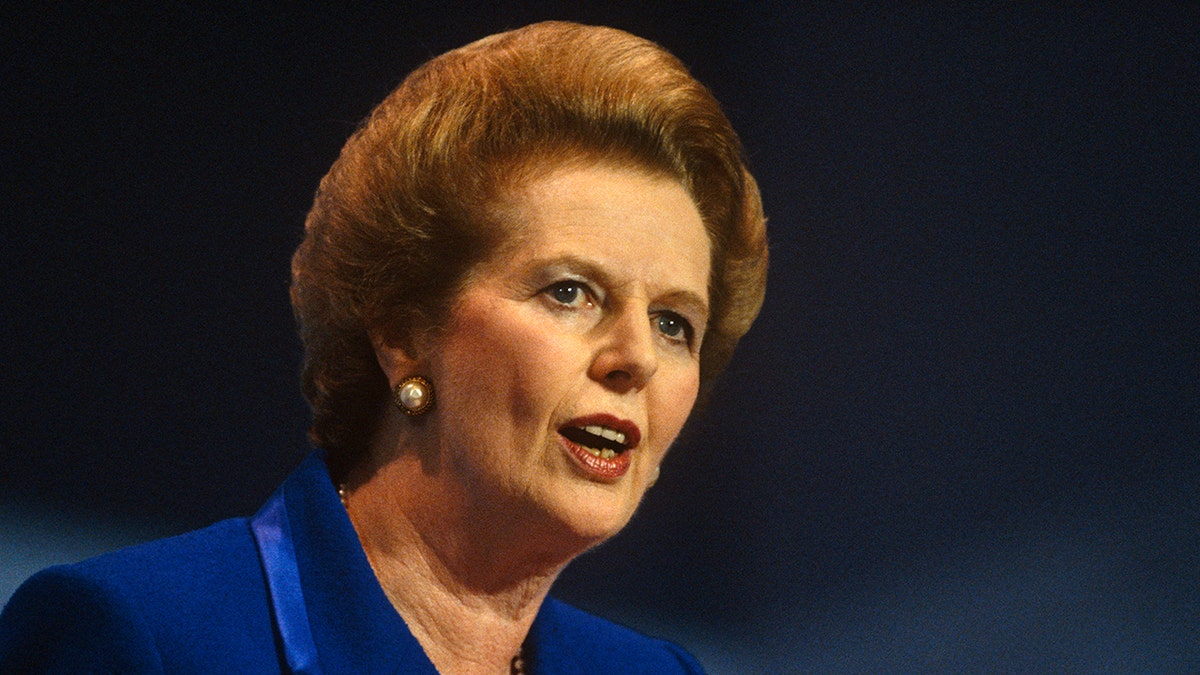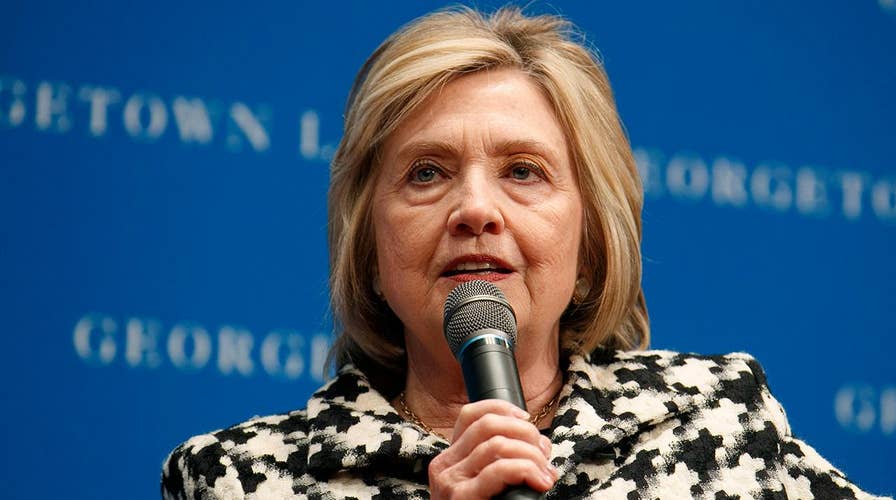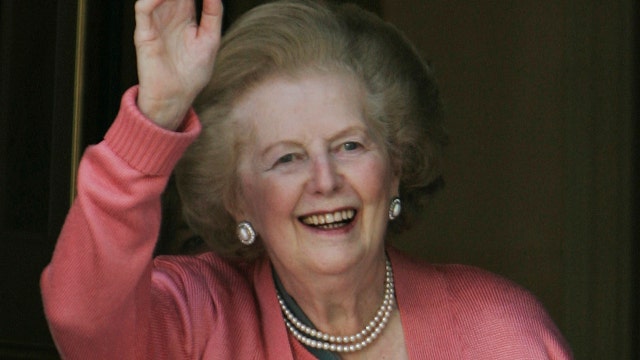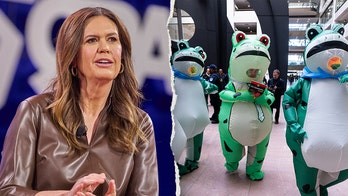Hillary Clinton says she's under 'enormous pressure' to enter 2020 race
'The Next Revolution' host Steve Hilton on the possibility of Hillary Clinton joining the 2020 race.
Margaret Thatcher was the daughter of a greengrocer who rose to become Britain’s first female prime minister, won three national elections, oversaw an economic revolution at home, and faced down the U.S.S.R. -- earning her the moniker “The Iron Lady” from the Soviets.
She didn’t, however, meet the mark for Hillary Clinton’s book on gutsy women.
CLINTON ON BEING A POLARIZING FIGURE: 'I'M SURE THEY SAID THAT ABOUT CHURCHILL BETWEEN THE WARS'
The former secretary of state, who failed in her 2016 bid to become America's first female president, is out with a new book, “The Book of Gutsy Women: Favorite Stories of Courage and Resilience.”
The book, written with her daughter Chelsea, includes profiles of women including Harriet Tubman, Malala Yousafzai, as well as writer Rachel Carson and swimmer Diana Nyad. But in British quarters, the omission of Thatcher seemed glaring. Clinton was asked about it by a BBC radio host, who said that the late conservative prime minister seems to fit the description of gutsy “even if you didn’t like her.”
"She doesn't fit the other part of the definition in our opinion, which really is knocking down other barriers for others and trying to make a positive difference," Clinton responded, saying Thatcher’s record was “mixed.”
She went on to say she thought Thatcher was “strong” and “clever to mold herself to be more acceptable in terms of everything from hairstyle and speaking style to clothing style.”
“But on the criterion we were really looking at: ‘OK what were the positive differences, the changes this person made that really opened the doors to more?' That wasn’t really that apparent,” she said.
Those with a more favorable view of Thatcher reacted with astonishment to Clinton’s remarks.
“It’s simply staggering that a book about strong women leaves out Margaret Thatcher, who undoubtedly has been the most important woman leader of modern times by a mile,” Nile Gardiner, a former Thatcher aide and director of the Heritage Foundation’s Margaret Thatcher Center for Freedom, told Fox News. “It’s astonishing that she would be omitted from a book on this subject, and it says a huge amount about liberal bias and liberal intolerance.”
Thatcher remains a divisive figure in Britain in some quarters, particularly on her legacy of pushing back against trade unions and her free-market reforms to the British economy. Her supporters say she turned Britain from “the sick man of Europe” to an international powerhouse during her time in office.
But those with a less favorable view say that those reforms devastated some communities, particularly those reliant on industries such as coal mining. However, she remains broadly popular and regularly comes near the top of rankings of British prime ministers.

The late British Prime Minister Margaret Thatcher is seen giving her last speech as PM at the October 1990 Conservative Party Conference in Blackpool, Lancashire. (Photo by In Pictures Ltd./Corbis via Getty Images)
Gardiner said that Thatcher “had an incredibly positive impact not only for women but for everybody, for all the people of Great Britain and for the entire free world.”
CLICK HERE FOR THE FOX NEWS APP
Supporters will also point to other examples of her gutsiness, including how she survived an IRA terrorist attack against her in Brighton in 1984, before going on to make a speech at her party's conference the next morning, as well as her leading the charge to defend British territory against Argentina in the Falklands War.
"A prime example of her leadership would be the Falklands War, where she stood up to a Latin American dictator who had seized British territory and she waged a war nearly 10,000 miles across the world to make sure the British territory was liberated,” Gardiner said.
“That’s real leadership. She was not just a prime minister but a warrior leader as well, and that's gutsy,” he said.














































